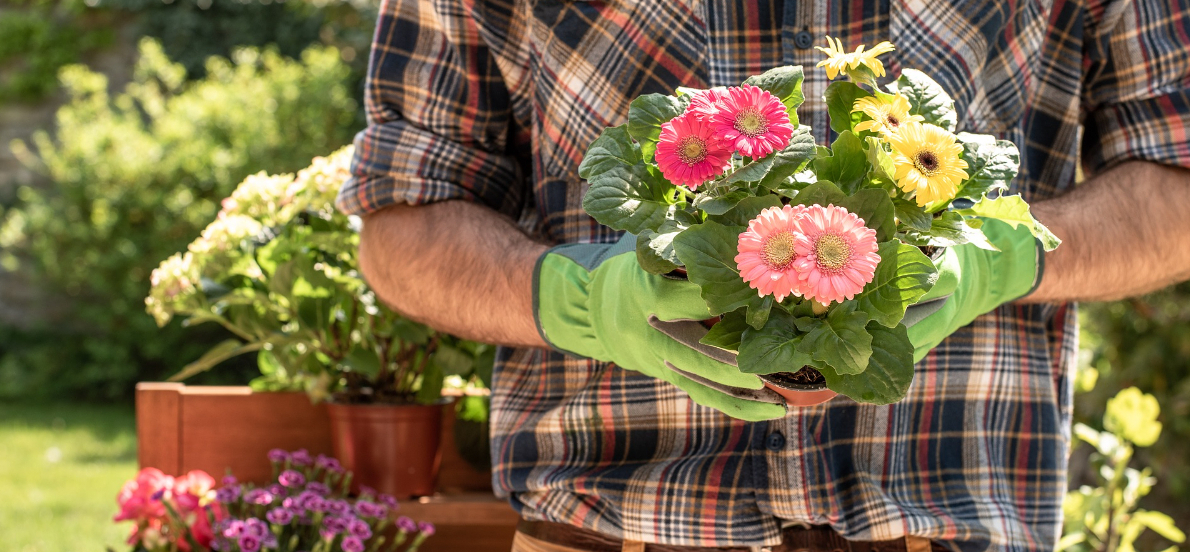What should I do everyday in my garden? We look at the habits of successful gardeners and top gardening tips using everyday items.
Whole garden care is exhausting for many gardeners, from beginners to experts. If you tend to your garden every day, you will know how much care is required. If you're new to gardening and are unsure about how to keep all your plants alive, keep reading this article for professional gardening tips.
Habits of Successful Gardeners
Successful gardeners will tell you that to keep healthy plants, you have to do a little every day. Those who spend time throughout the growing season tending to their compost pile and new plants, trimming flower stems and fighting off plant diseases will have a healthy outdoor space.
Whether you have a vegetable garden, fruit pots or beautiful flowers, it's all the same. Investing in proper gardening tools and encouraging new growth in annual plants will help you catch small problems before they grow into bigger issues.
A good productive system is crucial for stopping pests and disease from spreading while knowing what the beneficial insects are in your own garden.
If you're reading this and thinking, "all my plants continue to die", then there is still hope, but you need to implement new gardening measures. Here are our top tips that successful gardeners use in their gardens:
Pay attention to the watering
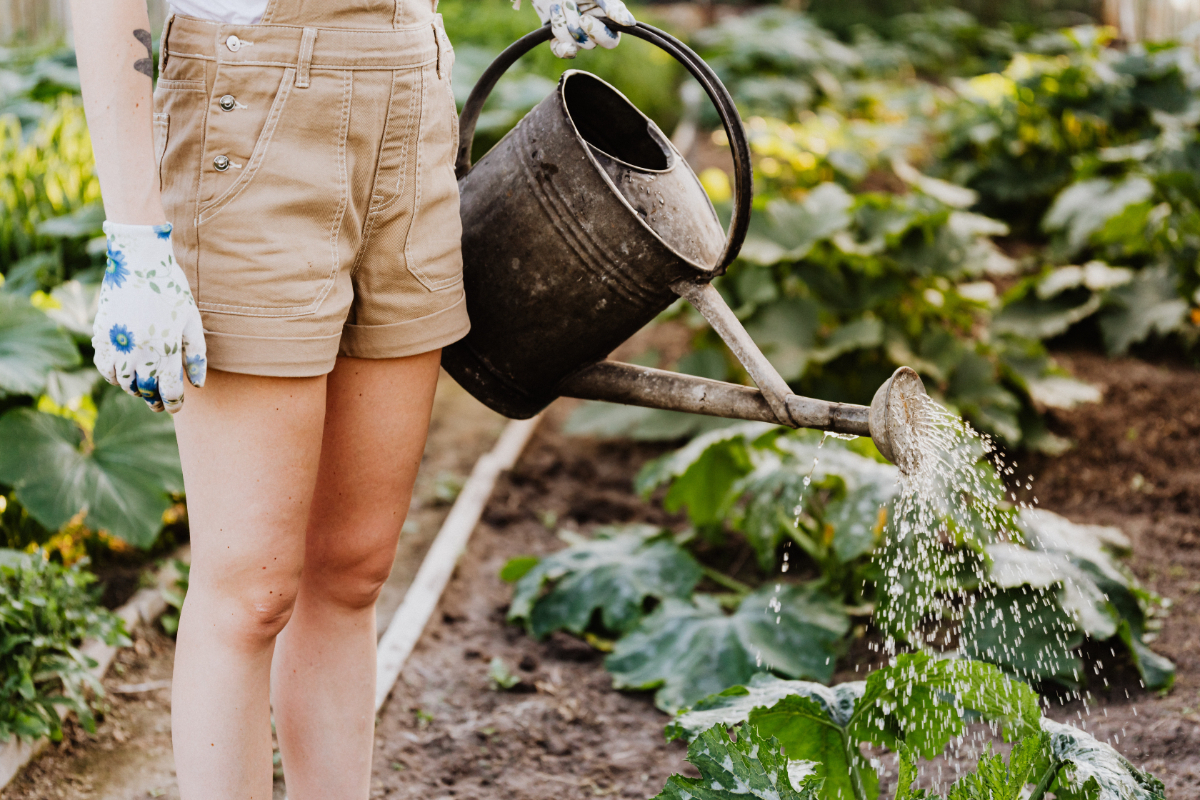
One of the most (if not the most) important garden care tips is to take care when watering plant roots. To many gardeners, this is second nature, and they are regularly watering the soil surface to help their plants grow and thrive. Yards that experience full sun for hours on end will be drier than others, meaning your plants are in need of water.
If you're unsure of whether your plants need watering, stick your finger into the soil a few inches. If it's dry, get your watering can out and begin helping your plants. You will also notice dried leaves, wilted leaves or slight yellowing in plants that are in desperate need of watering.
Of course, over-watering is also a problem for beginner gardeners, and you can realise this from wet soil, brown leaves, floppy plants or even foul-smelling roots. If this is happening, ask yourself how much water you're applying and cut back.
A good soak weekly is sometimes much more effective than watering every day. You can also use moisture meters in raised beds and containers, ensuring they are receiving enough care.
Using a drip irrigation system works for many gardeners, but you will still have to adjust your watering system as the temperature changes throughout the seasons. Avoid overhead sprinkling where possible and only do this when the leaves can dry quickly (as you don't want wet leaves), but the roots will still absorb water.
Daily pruning and deadheading
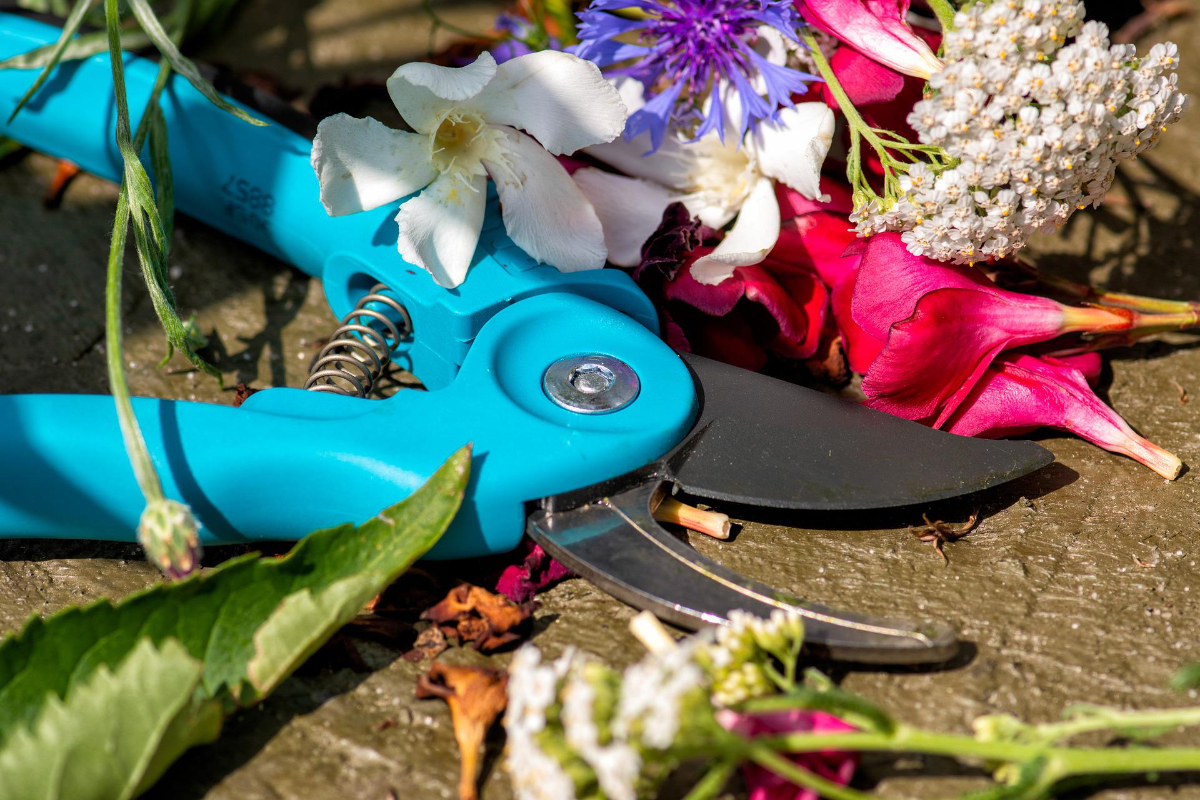
Investing in pruning and deadheading garden tools is a requirement for all gardeners. Pruning may seem daunting to you, but daily tidying up of your garden will help keep it manageable and stop it from getting out of control.
You can prune off dead or dying leaves, along with deadheading flowers to encourage more blooms. Leave foliage around plants until it turns brown and can be pulled with a tug, though. Prune suckers out of tomato plants, helping future growth.
Pruning doesn't have to be scary and is a crucial part of planting and caring for your garden. Look out for weeds and take care to remove them before they overrun the space. Don't forget to keep your herbs harvested, too, as this will prevent flowering and encourage better growth.
Knowing your hardiness zone can also help you to know what you should plant (as shrubs and trees may not survive in your garden). Pruning trees and shrubs are essential, too, especially when maintaining an aesthetic.
Watch out for bugs
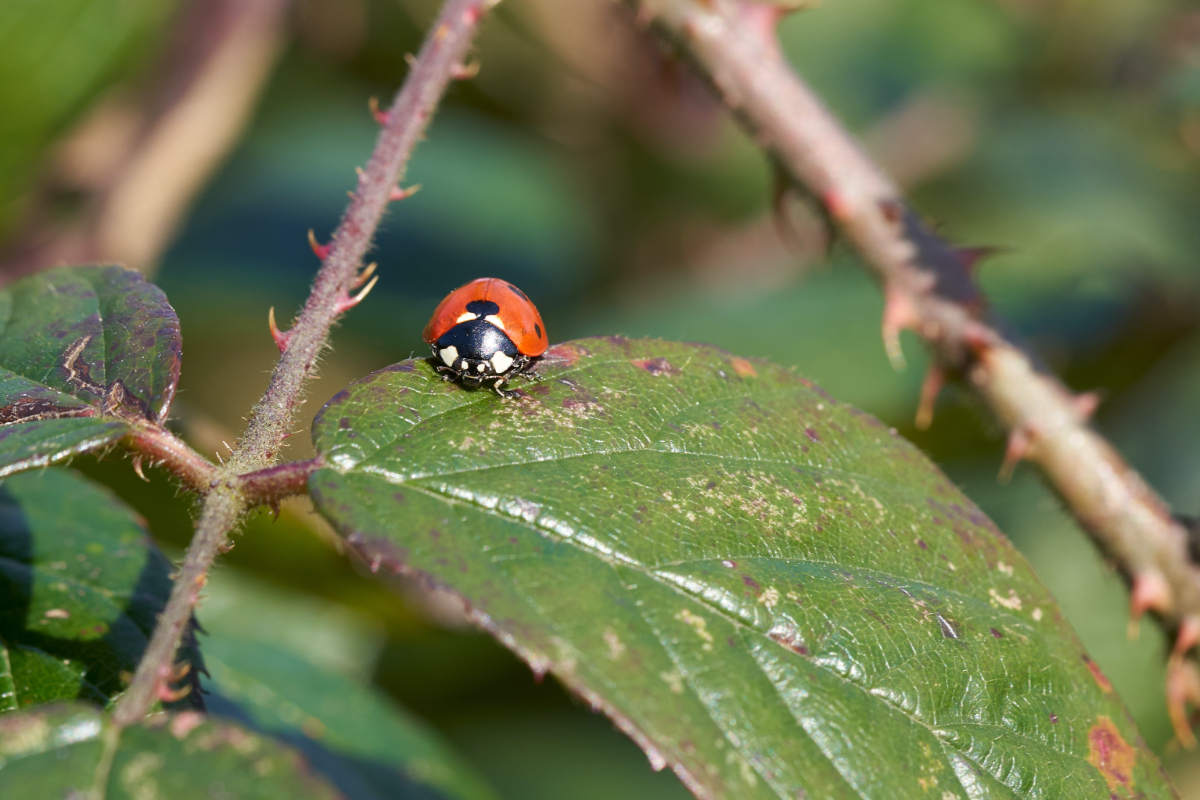
Many insects and bugs in your garden are not a threat to you, but if you start seeing increased numbers of aphids, slugs or snails, you should be concerned.
A few chewed leaves are not a cause for concern, but check leaves for holes on the underside, as worms are causing these. Pests and eggs can be found on the underside of leaves too.
New seedlings can receive pest and bird damage, so consider installing barriers to stop this from continuing. Remember that not all bugs are bad, and many beneficial insects are helpful to your plant pots and can aid the growing zones.
Look for diseases
Unfortunately, your plants can become diseased. Understanding what the symptoms are and how to stop them from spreading can save you lots of time and money. Removing any affected leaves, you spot from your garden can prevent the disease from furthering.
If only one plant is affected, remove that plant. Look for leaf spots during your daily observations of your plants, as spotting the disease early on can lead to more efficient treatment and your garden becoming healthier once again. Searching for conditions now can prevent you from losing your favourite plants.
Observe new growth
Walking around your garden should become a daily practice and can be enjoyable. After all, you've started creating this garden to be enjoyed, so start doing that. New growth is exciting, and you can help your plants as they grow.
Look for any plants that need help finding the trellis and consider attaching the branch to the trellis, preventing any breakages. If you have been adding mulch and the plants need help pushing this back into place for new seedlings, you can start encouraging growth in a certain way. Weeding should not be ignored at this stage and can actually prevent new growth if you do. Check every day or every other day for new weeds and to maintain a healthy garden.
Keep harvesting
Another part of your daily observation is to monitor what's ready for harvesting. This is another fun part of gardening, heading out with your harvest bucket and picking the bounty from your hard work. Peas, beans and roselle may need assistance being picked, especially when it's been a fruitful year.
When you pick some fruits and vegetables, you are actually encouraging future production and growth, so look for fruit trees with ripe produce and remove them before pests and diseases can creep in.
The riper the produce becomes, the more likely animals and birds are going to attack and attempt to feed on it. Regardless, your plant's flavour is better when picked in the morning, so consider implementing this step during the first hours of your day.
Gardening tips using everyday items
Gardeners are always passing on helpful information to one another, helping beginners with the process and providing more ideas about how to make their gardens thrive.
Whether you're looking to protect your fruit and veggies from animals and pests or need advice on natural fertiliser to improve the taste of your own food, here are our tips for using everyday items on your garden:
Banana skins
When it comes to caring for roses, some of the most expensive products for gardeners to buy is rose fertiliser. You can save yourself money by using banana peels, which is an old hack used by gardeners everywhere.
The added potassium in banana skins can be chopped up and placed on the top layer of soil around the rose bushes, adding nutrients to the ground. This is a fantastic tip for those that struggle with feeding their roses and want to save money. You can also use bananas to ripen tomatoes in greenhouses due to the gas ethylene produced.

Old irond nails
Using rusted nails can actually help your azaleas and rhododendrons (or other acid-loving plants). The rust on the nails releases iron into the soil, which is fantastic for those plants. Leave these nails in a full watering can for a few days, allowing the rust to soak off and then water your ericaceous plants with that water.
Brillo pads
Alternatively, if you cannot find old iron nails, use a brillo pad. Add a brillo pad to your main watering can and let it turn rusty, then water those same acid-loving plants as normal.
Old towels
If you're going away and are concerned about your garden, you can use old towels to keep your plants soaked for additional time. Lay down old towels on the soil and soak them with more water before placing the plant pots on top.
The roots will draw water up from the soaked towel, which will stay wet for extended periods. This works with houseplants (do this in the bath) or with patio pots in a big tray.
Beer
If you don't want to use pellets or pesticides to remove slugs from your garden, you can use a cupful of beer. Dip a small hole and place a cup of beer a few inches into the soil, so the rim is at ground level, and the slugs will be drawn to the beer.
They will fall in and drown, so you will have to remove them and top up the trap daily, but this is a good way to remove slugs from your garden without damaging your plants.
Muscle relaxant spray
Many gardeners know the trouble that cats present to their gardens, leaving urine and cat faeces around. Using muscle relaxant spray is a good cat deterrent.
Spray old, cold tea bags with the relaxant spray and hang them around your garden, stopping cats from entering. This smell should last a couple of weeks and will not be a distraction to you, only those felines you want to get rid of.
Vodka
If you have flower vases throughout your home and notice the water turning green, add a splash of Vodka. This can stop the bacteria from growing in the water, which in turn rots your flower stems. This will not harm your flowers and can keep the water looking clearer for longer.
Eggshells
Another cheap way of feeding your plants is using crushed eggshells, and dropping them into a bucket of water. These shells can add calcium and minerals to your water, which your plants will thank you for after being watered.

Teabags
Tea leaves are a fantastic way of adding minerals to your plants. When the tea bags have gone cold, add them to a jug of water and pour this around any ericaceous plants. Alternatively, you can add tea bags to your compost heap or rip them open and add the leaves to the top layer of soil. These leaves will act as mulch, promoting growth.
Sugar
After pruning and deadheading, you can encourage new growth and blooms to open by adding dissolved sugar into the water. A vase full of water can have a teaspoon of sugar added, but be sure to change the water daily.
Plastic carrier bags
If you are experiencing dry weather without rainfall, consider using a plastic bag and filling it with ice cubs. Punching holes in a plastic bag and leaving ice cubes in can help water your plants. Lay the bag on the soil around plants, and as the ice melts, it will slowly water your plants throughout the day.
Smelly soap
Squirrels and other rodents will try to get at your plants and bulbs, so consider using soap over the planting hole. Grating soap over the hole and over the top can stop squirrels from approaching the plant, as the smell will deter them. Remember to plant this deep in the soil (ideally twice as deep as the bulb's height). This can disguise the smell of the bulb further to animals that want to steal it.
Coffee grounds
Your used coffee grounds are full of nutrients and can be used as mulch, so don't throw them away! Many things in your kitchen can be added to your compost pile, so consider keeping your coffee grounds or applying them directly to the soil around plants as mulch.
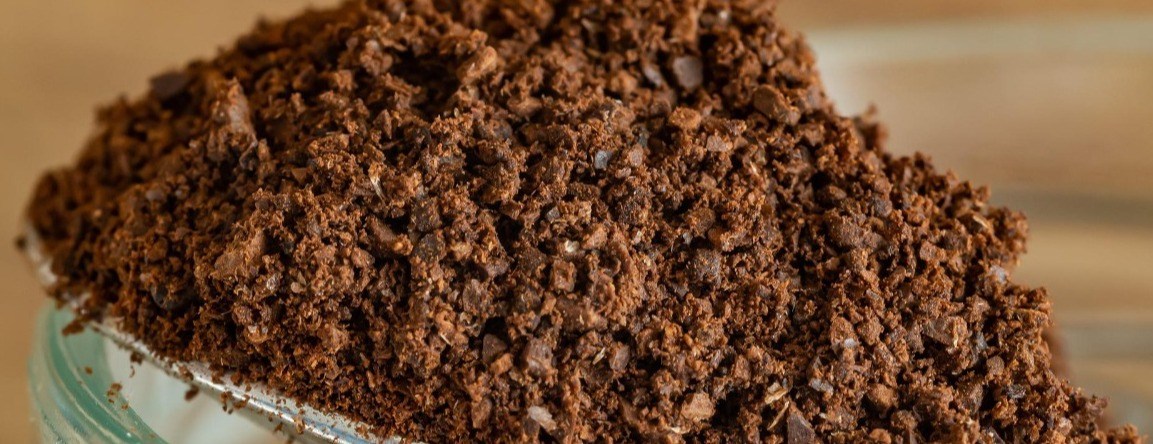
Wooden coffee stirrers
You will want more plant labels as your garden grows and you invest in more plants. Coffee stirrers are commonplace in coffee shops, so the next time you go out, consider grabbing a small handful. These are great to write on, coat with varnish and then place into the soil, helping you identify the plant with ease.
Plastic shower cap
Have you run out of propagators? Are you sowing seeds and need to take cuttings? Try using shower caps over plant pots, creating an instant propagator for you. You should ventilate the pots regularly, though, so don't keep the shower cap on for extended periods. If you have leaves growing, consider propping the shower cap up with those coffee stirrers you have to stop the propagator from touching the leaves.
Tic tac boxes
If you buy tic tacs or something similar, these small boxes are ideal for storing seeds. Wash them out, and your seeds can be kept safely in these airtight containers. Don't forget to label each box as you store more because you don't want your seeds getting mixed up!
Mayonnaise
Believe it or not, you can use mayonnaise as a natural leaf gloss and cleaning agent for dull houseplants. Using a kitchen roll, apply mayo to the houseplants, and you will notice an instant improvement.
Old tights
You can create homemade filters using old tights, keeping the water in water butts fresh. Tights and stockings are fantastic at this. At the end of the drainpipe, use tights to catch debris or leaves, helping keep all water fresh and without mess. Many gardeners also use tights as tree ties as they stretch in the wind but can be tied as desired around tree stems. Use these in conjunction with wooden stakes for the best effect.
Bubble wrap
Tying bubble wrap around plant pots during Winter can help protect them from frost. If you live in colder areas, you should start taking precautions in autumn to insulate your plants when the temperature drops, helping you stay ahead for spring and prioritise the things that matter for the new year.
We hope you found our article on essential gardening tips useful. Our lawnmower services are here to help you maintain your garden.
Are you looking for lawnmower spare parts in Northampton? Get in touch today! We are the premium provider of lawnmowers and ride on mowers in Northamptonshire.

